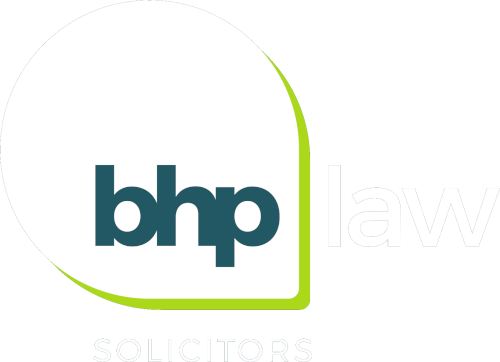11th August 2021

Have you been involved in an accident and not sure who was at fault?
Our Personal Injury team offer their advice.
Compensation may be due if you were harmed in an accident through no fault of your own. If the accident is proven to be because of someone else’s negligence, you can claim reparation should you need time out of work to recover or require funds to help aid recovery.
How to determine who is at fault
There are two sides to every story and unfortunately, it’s not always as straight forward as someone taking ownership of any failed responsibilities. It may be that evidence is needed to determine who was at fault.
Below we cover relatable scenarios, that may provide clarity before progressing with a claim.
Whilst at work
Whether you work in an office, a restaurant, bar, or a factory – every workplace has potential risks to our health. However, if you are an employee, it is your right to be protected from harms way through strict health and safety measures.
Employers have a duty of care towards all employees and should provide adequate safety measures, personal protective equipment and appropriate safety training.
Workplace assessments should be carried out regularly to ensure the working environment is safe for all employees. For example, every employer should have a clear fire drill procedure, all employees should know who their nominated fire warden is, know how to exit the building and where to report to in case of a fire. Emergency exits should be clearly marked and free from any obstructions.
If a job involves anything that can be potentially dangerous, such as operating heavy equipment, it is the employers responsibility to ensure that employees are aware of the risks, trained in all the scenarios to minimise these risks and provide staff members with any required specialist personal protective equipment that will help keep them safe.
If you have been hurt at work due to an employer failing to exercise its duty of care for your health and safety or if you have been hurt at work by a colleague failing to comply with their training, you should be able to succeed in a claim for compensation against an employer.
In some cases, the employer may not be held at fault or to blame if the accident was determined to have been caused or contributed to by your own negligence or reckless behaviour that goes against the reasonable workplace safety rules and regulations.
You can read more about claiming following an accident in the workplace on our website.
On the road
According to the Department for Transport, 24,470 people were killed or seriously injured in a road traffic accident in the year ending June 2020.
Sadly, disputes over fault in road traffic accidents are seemingly almost as common. If an accident occurs between two vehicles, it’s not always as simple as one person taking responsibility and even if they do, some individuals may change their mind after the accident and deny they were at fault upon involving insurance companies.
Things to consider when you’re in an accident on the road
Were you abiding by the rules of the road? Were you speeding or driving without due care and attention, on the phone, or under the influence of drink and or drugs?
Were any of the above apparent with the other driver?
All drivers must obey the rules of the road and if the law isn’t followed, then the driver at fault will be held accountable.
In some instances, the road traffic police investigation unit will determine who is at fault, an investigation will take place where crucial evidence will be gathered. Witness accounts, dash / CCTV camera footage, even an inspection of the scene of the crash or an examination of the vehicle can be performed to help prove who was at fault.
There are many factors that may determine fault in a road traffic accident so if you’re unsure, our Personal Injury specialists can offer help and guidance.
There are many ways that fault can be determined no matter the accident, it may not be clear at first where responsibility for the accident lies but our specialist team can help you understand how fault is attributed and what you are able to claim for.
If you or a loved one suffers what insurers refer to as a catastrophic injury, life is likely to become challenging. Spinal injuries, head & brain injuries, amputations or severe burns can change your life and that of your family forever.
Specialist care and support may become a necessity. Specialist equipment may be required, and your home may need to be adapted to suit your new needs. Months of rehabilitation may follow the accident, which has led to your serious injury. Retraining may become necessary as you may no longer be able to do your current job. For some, their serious injury will mean the end to their working lives. In order to begin rebuilding your life, you will need financial support.
What you need to know about raising a compensation claim for a catastrophic injury
Serious, catastrophic or life changing injuries is a very specialist area of law, so it is important that your solicitor has specific experience in this field. Here at BHP Law, we have the experience and can offer the advice that you will need.
If you’ve had an accident, it can be an incredibly traumatic time for everyone involved. You need to be certain of getting the right advice as soon as possible, ensuring you receive all the help you are entitled to.
If you would like to speak to our Personal Injury specialists with regards to a claim, give us a call on 0800 590 019. Most of our personal injury claims are conducted on a "NO WIN NO FEE" basis, after a brief chat they may be able to help you progress your claim with confidence.

